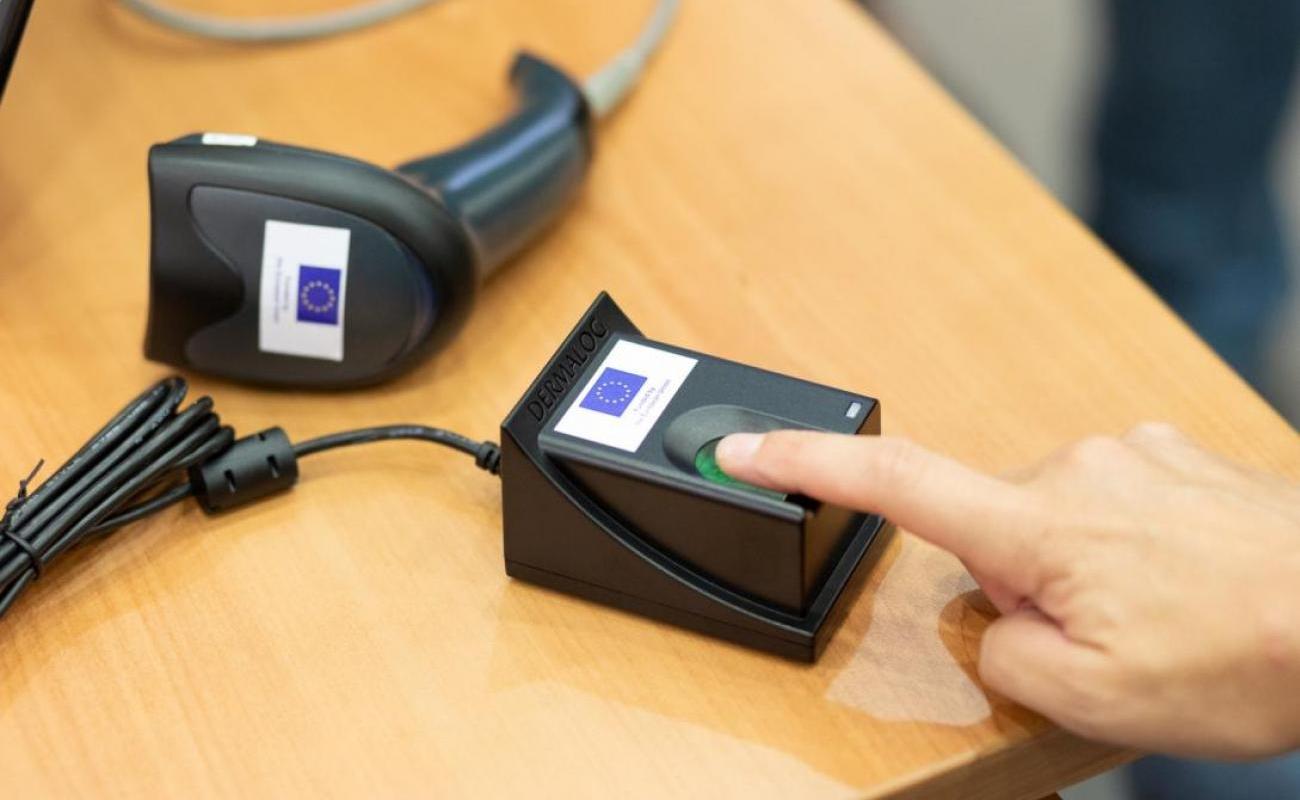The European Union supports the strengthening of integrity, accuracy and trust in electoral process in BiH

Equipment and software solutions worth over 600,000 euros were officially handed over to the Central Election Commission of Bosnia and Herzegovina today as part of an EU pilot project to support the CEC and to improve integrity, transparency and efficiency of the election process in the country.
Equipment and software solutions worth over 600,000 euros were officially handed over to the Central Election Commission of Bosnia and Herzegovina today as part of an EU pilot project to support the CEC and to improve integrity, transparency and efficiency of the election process in the country. Ambassador Johann Sattler, the Head of the EU Delegation to BiH and the EU Special Representative in BiH, handed over the project equipment to the Central Election Commission in the presence of representatives of the local communities where the new equipment will be used, parliaments, political parties, non-governmental organizations and the media.
“Together, we are making important steps to improve and strengthen the electoral process in BiH - a bedrock of democracy. The European Union has been committed to supporting democratic institutions and processes in Bosnia and Herzegovina and we will continue. This project is not abstract, rather it is close to the core of our main project - bringing Bosnia and Herzegovina closer to the EU. It is a concrete step towards preventing electoral abuses and ensuring faster, more reliable election results.” said Ambassador Sattler.
Through the project, 175 laptops, 175 fingerprint scanners and 175 barcode scanners were acquired, as well as the necessary software solutions and servers for device management. The introduction of new voter identification methods such as fingerprints enables the prevention of abuse of voting rights, and the use of new systems for entering and transmitting results enables better communication between election commissions and faster publication of election results, which ultimately improves the effectiveness of the process itself and the trust of citizens. Project partners, as well as representatives of local communities, had the opportunity to participate in a simulation of the use of new equipment and learn about the advantages of using the new technologies.
“The acquisition of equipment and the creation of a software solution are prerequisites for the implementation of the pilot project, but I would also like to point out that the training of all election participants, the provision of logistical support and the public information campaign are very important steps in the entire process. We expect that all the necessary preconditions will be ensured by the election day, and the public will be informed about everything in time,” said dr. Irena Hadžiabdić, the President of the CEC, adding that the Working Group for the Integrity of the Electoral Process will coordinate activities to support and implement new technologies. Hadžiabdić thanked the Office of the European Union for its continuous support in improving the electoral process and the work of the Central Election Commission.
"I am grateful that IDDEEA was chosen to provide technical support for this project in accordance with our competences. I hope that this pilot project will end successfully and that new technologies and everything that will be implemented in these elections will be what is needed for democracy to succeed and for citizens to realize their voting right, which is the goal of this project," added Dr. Almir Badnjević , director of IDDEEA.
This pilot project of the European Union is being implemented by the Central Election Commission and the Agency for Identification Documents, Registers and Data Exchange (IDDEEA). The introduction of new technologies requires piloting in order to ensure the efficiency of the equipment in new processes before being introduced more broadly. 165 polling stations in 10 constituencies including Stari Grad Sarajevo, Tešanj, Doboj, Bijeljina, Trebinje, Gradiška, Goražde , Sanski Most, Zvornik and Domaljevac-Šamac will have the opportunity to test the electronic voter identification system and faster transmission of election results to the local and Central Election Commission during the October 2024 elections.
